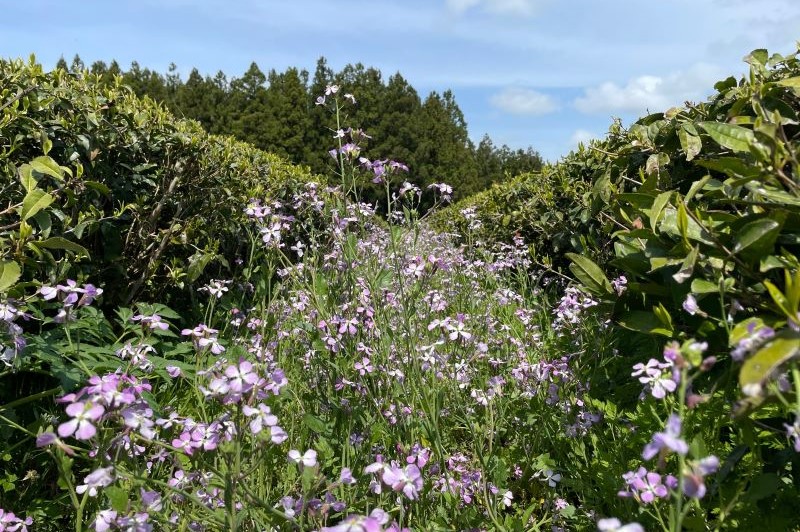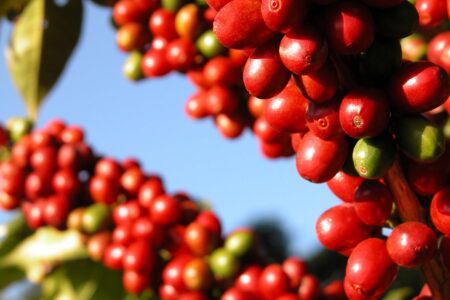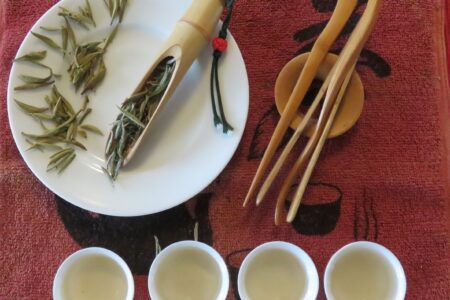Net zero is no longer enough

Image: Wild Orchid
Although slow-moving and difficult, the path towards regenerative agriculture is paving the way towards net positive. By Anne-Marie Hardie.
Climate change and the continued weather unpredictability have prompted agriculture and manufacturing industries to look deeper into their practices and their impact. Growing food with weather shifts wiping out crops and depleted soil beds not providing adequate nutrients is increasingly challenging. Sustainable and organic methods can ensure that no further harm is being done; however, there is increased recognition of the need for incremental positive changes in the atmosphere and the soil.
On 16 January, the World Economic Forum reported the need to take immediate action to create a nature positive economy. This includes recognising regenerative agriculture for both its potential to address the climate crisis, while also cultivating new businesses and jobs.
Keeping carbon in the earth and plants
One way to decrease the amount of carbon dioxide in the atmosphere is through biological sequestering, which naturally occurs in grasslands, forests and soil. In a recent study published by The Journal of Agricultural Science, researchers Iticha and Niguse explored coffee plants’ contribution to sequestering carbon in agroforestry systems of Southwestern Ethiopia. The study looked at coffee forests’ role in mitigating climate change to quantify coffee plants’ contribution to the overall carbon stock of coffee agroforestry systems. The study’s results demonstrated the interdependency between crops, specifically, that the carbon sequestration varied with the coffee management system and type of shade tree. “Albizia julibrissin” (mimosa or silk tree plant) was the most compatible plant, followed by the mixed tree-shaded stratum and the “Syzgium”-shaded coffee stratum.
According to the Rodale Institute, the widespread adoption of regenerative organic practices could sequester more than 100 percent of the annual carbon dioxide emissions. In fact, the organic matter in soil has up to four times more carbon than the atmosphere and vegetation. However, to sequester the carbon in the ground, there is a need for a continual supply of organic matter. This organic matter is vital to both prevent carbon from leaching into the atmosphere and to support microbial life and plant life.
Regenerative agricultural practices are increasingly being recognised as the key to achieving net positive and, in turn, helping repair the atmosphere and infuse nutrients back into the soil. It is a nature-positive agricultural system that mimics natural processes in the ecosystems. Through regenerative agriculture, agroecosystems can be designed to improve soil health, biodiversity, the carbon sequestration rate, and increase the economic resilience of farmers.
On its website, Nespresso explains that regenerative agriculture “is a holistic agricultural system that works in harmony with its local environment. Practices such as using cover crops, crop rotation, no-tillage, diversification (when possible, with trees) and others are applied for that purpose.” Adopting regenerative agriculture practices has been proven to have a widescale impact in addition to carbon sequestering, ecosystem resilience and improved soil health such as developing more nutrient-dense foods.
Recent research from the Farming Systems Trial conducted by the Rodale Institute revealed that these practices could produce a more nutrient-dense crop and be an effective model to withstand the stressors of extreme weather changes. Their 40-year report showed a positive impact on soil health, water infiltration, carbon capture, and yields when adopting regenerative organic practices. In addition, the trial results supported that regenerative organic plots could sustain their crops in extreme weather conditions. “The Farming Systems Trial (FST) is one of our most significant research projects,” Rodale Institute CEO Jeff Moyer said. “In fact, with FST’s 40 years of accumulated data and findings, it is fair to say that it is the most consequential study of organic agriculture anywhere.”
Despite this long history with regenerative practices, conventional farmers have only recently recognised regenerative as a potential solution to sustain and grow their businesses. Growth in the tea and coffee sectors is on a positive trajectory, including adopting the Regenerative Organic Alliance (ROC) certification to help communicate these agricultural practices to consumers. Equator Coffee, Heirloom Coffee Roasters, Canyon Coffee, and Groundwork Coffee are four coffee roasters using the ROC certification, obtaining certified coffee from producer groups based in Nicaragua and Sierra Leone.
On 6 March, the 2023 Natural Products Expo West trade show in Anaheim, California, reported that 63 CPG brands attending the event support regenerative agriculture, an increase of ten companies from the previous year. Regenerative agriculture was a topic of interest this year, with the Expo West recognising and celebrating leaders in regenerative agriculture and acknowledging the challenges these companies have faced. “The keynote speaker on the first day at the Expo West really put forth regenerative agriculture as the top solution to address climate change today,” said Michael Ham, founder, Wild Orchid Tea, Mt Kisco, New York. “People are waking up to the fact that we cannot extract any more from the Earth, and we need to replenish what we’ve removed.”
Natural Products Expo West reported that there are several barriers preventing widespread adoption, including a limited supply chain, difficulty in implementing the practices, and a lack of clarity on how to communicate the value to the end consumer. Only 4 percent of US consumers are aware of regenerative practices; however, 49 percent of US consumers identified as either being health and/or environmentally motivated, providing a potential market for regenerative products to tap into.
“The biggest thing brands need to look at is the purchasing power of the younger demographics,” said Ham. “This group is looking for brands very focused on sustainability, environmental consciousness and how they treat their workers.” Wild Orchid Tea has been slowly building awareness of the virtues of regenerative agriculture through education and its product line. This year, one of their primary areas of focus is on growing their retail market, which includes launching a plant-based tea bag line providing consumers with a convenient, high-quality regenerative tea product.
Within the last five years, several significant players in both the tea and coffee industries have become advocates for this method of agriculture, providing resources and training for farmers wanting to convert the farms. Established by Filipe Villela and Marco de Boer, reNature, based in the Netherlands, was created to support coffee farmers contemplating switching to regenerative practices. The company supports farmers with various tools, including training programs and strategic advisory consultations, to aid them with the transition to a regenerative farming system.
In its Positive Cup report, Nespresso emphasised the need to accelerate the transition to regenerative agriculture. This includes the commitment to reduce the use of agrochemicals, and adopt nature-based practices, carbon removal, including a commitment to plant four million trees each year, and the adoption of crop diversification, and reduced tillage, to infuse the health of the soil, and reduce the amount of carbon dioxide in the atmosphere. Nespresso is working in conjunction with reNature to both define key regenerative agricultural practices in the coffee sector and develop an analytical framework to evaluate both the costs and benefits of these practices. One of the first adopters of these practices is the Guima Café, Brazil, where they are currently implementing regenerative agriculture practices, beginning with a 10-hectare demonstration plot, with the goal of scaling it to 850 hectares.
“I think this year is going to be a seminal moment for regenerative brands,” shared Ham. He shared that his booth received a lot of interest and support about regenerative practices throughout Expo West, including questions from major retailers and tea brands. “It (regenerative agriculture) is going to be a focus at these top retailers. This increased attention on regenerative practices, and products, is vital to help increase consumer awareness of this agricultural practices, and in turn, drive sales.”
Led by its chairman, Andreas Illy, who has long-been a proponent, illycaffè has been a passionate advocate for virtuous (regenerative) agriculture in both the coffee industry, and in agriculture in general. The Trieste, Italy-based company aims to be carbon neutral by 2033. Recognising the need to increase consumer engagement in the necessity of supporting regenerative agriculture practices, illycaffè launched its #cupsidedown campaign, which was introduced in an Illy Art Collection this past October with the artist Matteo Attruia. The goal is to increase consumer awareness of the necessity of a circular economy, with virtuous agriculture being an essential piece of the puzzle.
“The upside-down cup, symbol of this campaign, has been designed to propose a change of perspective, a different way of living and observing our daily lives, starting from a natural gesture such as drinking an illy coffee, which must not be appreciated only for its taste but also for the value it generates for people and for the Planet,” explained Cristina Scocchia, CEO of illycaffè. “To amplify the positive impact it is necessary to stimulate a change of perspective, a new way of thinking about the use of resources that favour the transition from a linear economic model to a circular one. By working together, with a sense of responsibility, we can drive the transaction towards a sustainable future.”
Although regenerative agriculture is beginning to grow into various sectors, there are still several gaps across the supply chain. “It is still difficult to find farmers who have adopted regenerative practices,” said Ham, “We are very lucky to have partnered with a farmer who’s been doing it for over 30 years.” The tea for Wild Orchid is sourced from a wild tea farm on Jeju Island, where the the plot is nourished by volcanic organic soil.
ReGen Brands podcasters Kyle Krull and Anthony Corsaro labelled 2022 as the year regenerative agriculture took root. They emphasised that for regenerative brands to achieve success and, in turn, long-term sustainability, there needs to be a commitment to developing a regenerative market. They shared that there is a continued need for unified certification and standards to reduce consumer confusion. One recommendation they had was for the brands to work together to create a unified messaging strategy, including finding a way to define their values. Their 17 February podcast spoke with Abianne Falla, cofounder of CatSpring Yaupon, Cat Spring, Texas.
Falla’s company is highly diversified, selling sustainably wild grown yaupon as a wholesale and retail tisane and as an ingredient supplier for those seeking regeneratively grown Yaupon tea. “2011 was the driest year in Texas,” shared Falla on the podcast. “Everything was looking like wilted spinach, the only thing that wasn’t dying was Yaupon. We’ve always known the plant but had no idea that it was anything but a nuisance until this drought.” Yaupon Tea has 11 acres of certified regenerative organic yaupon, all of which are sustainably wild grown.
“Just like in other categories, the main driver for people to switch from the way that they’ve always done it comes from their philosophy,” said Ham. “If they understand that they can make their land better, make the soil better, grow a healthier crop and do it in a way that is sequestering carbon and reversing climate change, but in the end, it comes down to profitability.” Regenerative organic tea and coffee farms are still in their infancy, but the potential for a more resilient crop, resulting in higher yields, better quality products, and higher profits, are strong motivators to adopt these practices.
- Anne-Marie Hardie is a freelance writer, professor and speaker based in Barrie, Ontario. She may be reached at: [email protected].



